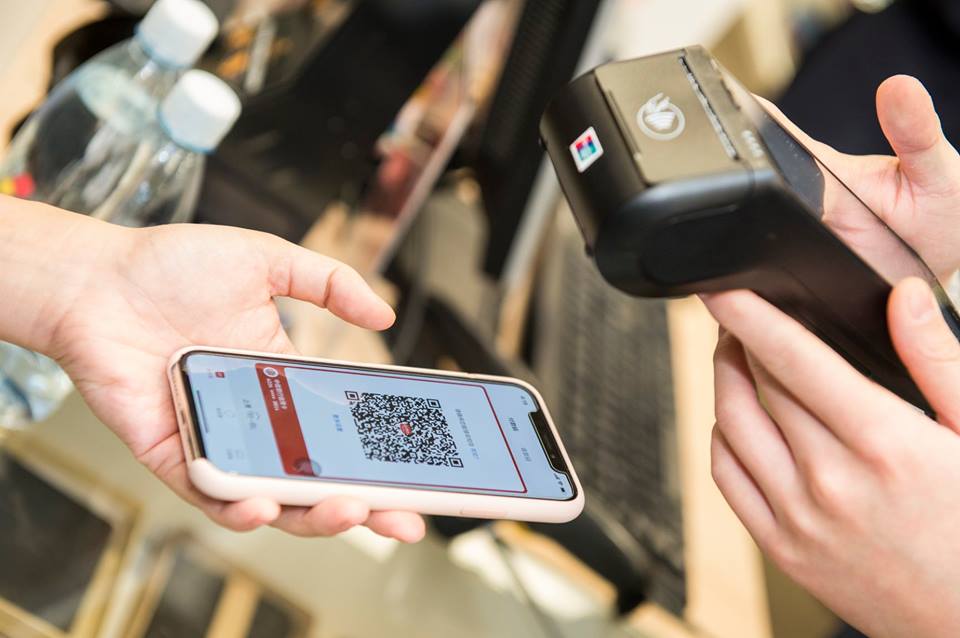China has become an increasingly popular Asian destination among Thais, from travelers, business people to students, because it not only has a unique cultural heritage and breath-taking natural landscape, but the country is also one of highly influential in global economy and technology.
But with its many specificities in traditions, languages and money, which is the top issue for many, first-time travelers to China often face with confusions. UnionPay, your best payment companion, has come up with top tips for efficient financial planning before you hop on the plane to China.
But with its many specificities in traditions, languages and money, which is the top issue for many, first-time travelers to China often face with confusions. UnionPay, your best payment companion, has come up with top tips for efficient financial planning before you hop on the plane to China.
What are the differences between RMB, CNY and Yuan?All of the three terms broadly refer to the currency widely accepted and used in China, but each has slightly different meanings. RMB or Renminbi is the official currency of People’s Republic of China and is the name used by the Chinese. On the other hand, CNY is the global term foreign exchange services or banks use. It is an abbreviation of Chinese Yuan, following the global standard of using three capital Latin letters by combining the names of the country and the currency. Likewise, THB refers to Thai baht. Therefore, Yuan can be used to measure the worth of goods. For example, this merchandise costs 10 yuan.
What should we know about QR code payment overseas? China is one the world’s most advanced cashless societies and most merchants now prefer accepting cashless payment, especially via QR code. Although this e-payment method is becoming more and more popular among Thai consumers, there is still a misperception that all QR codes operate on the same system. In fact, the QR codes that allow users to make hassle-free cardless payments overseas are those that run on international payment network. Several Thai banks are currently developing applications to connect with existing payment infrastructure. One of them is Bangkok Bank’s BeWallet, which will allow cardholders to make payment at merchants with UnionPay QR code – at over 10 million merchants in China and around the world.
What to consider when selecting credit or debit cards to use during the trip?
Credit or debit cards issued by Thai banks are still one of the most convenient and safest alternatives to carrying lots of cash when traveling, working or studying in China. To get the best out of your trip, consider the cards that operate on global payment network with large merchant network and ATMs in China, and come with high security standard with 6-digit PIN.
Credit or debit cards issued by Thai banks are still one of the most convenient and safest alternatives to carrying lots of cash when traveling, working or studying in China. To get the best out of your trip, consider the cards that operate on global payment network with large merchant network and ATMs in China, and come with high security standard with 6-digit PIN.
What is Travel Card and what are its benefits?Travel Card is one of the most interesting choices, especially for frequent travelers. This card type allows cardholders to exchange money and store local currency within the card. As a result, users no longer need to pay the hefty foreign currency conversion risk fee when making payments and they can control their own spending very easily. Plus, some banks offer very competitive exchange rates as well.
Is it worth it to apply for a new card for one trip to China?For those who may not travel to China that often, applying for a new card seems to require too much of an effort and all the privileges may not sound exciting when you only get to use it a few times. However, cardholders can enjoy these credit or debit card perks in Thailand as well because some payment networks and banks now offer very attractive local promotions. This means if you are well-planned, you can enjoy double privileges.
UnionPay recently partnered with Krungthai Bank for the launch of Krungthai Travel UnionPay Debit Card. The card can be used for payments in Thai Baht and Chinese Yuan, and has one of the best foreign exchange rates. Cardholders can also exchange money and manage their accounts 24/7 via the application. Most importantly, the card can be used at UnionPay’s network of over 26 merchant terminals and over 900,000 ATMs across mainland China.
Additionally, cardholders can enjoy various UnionPay’s privileges in Thailand, such as 88-baht movie tickets at Major Cineplex or 100-baht cash voucher when spending over 600 baht at Gourmet Market, Home Fresh Mart, Villa Market, Foodland and Central Food Hall. For more information, please visit www.facebook.com/UnionPayThailand.
UnionPay recently partnered with Krungthai Bank for the launch of Krungthai Travel UnionPay Debit Card. The card can be used for payments in Thai Baht and Chinese Yuan, and has one of the best foreign exchange rates. Cardholders can also exchange money and manage their accounts 24/7 via the application. Most importantly, the card can be used at UnionPay’s network of over 26 merchant terminals and over 900,000 ATMs across mainland China.
Additionally, cardholders can enjoy various UnionPay’s privileges in Thailand, such as 88-baht movie tickets at Major Cineplex or 100-baht cash voucher when spending over 600 baht at Gourmet Market, Home Fresh Mart, Villa Market, Foodland and Central Food Hall. For more information, please visit www.facebook.com/UnionPayThailand.






















